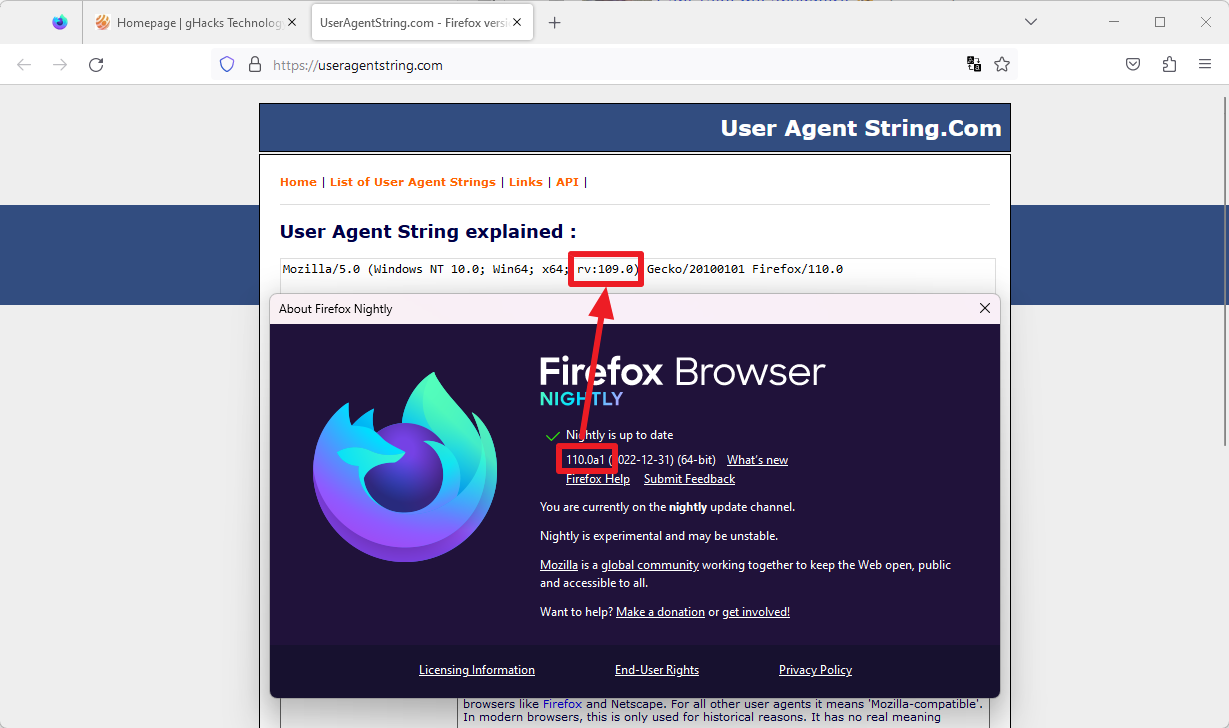Microsoft retired its Internet Explorer 11 web browser in 2022 officially to concentrate fully on Microsoft Edge. While Internet Explorer is disabled on most systems and from the focus of most developers, it has not been removed yet and it is still playing a role today. The browser is still haunting some from its grave.

There are two main use cases for which Internet Explorer is still relevant. First, in environments that use websites and services that rely on Internet Explorer-exclusive technology; this applies to Enterprise and business environments for the most part. Microsoft added IE Mode to Microsoft Edge to address this. Content designed for Internet Explorer can be loaded in Microsoft Edge using IE Mode.
The second may not look relevant at all anymore. Some websites and apps use code to determine the user agent. The user agent informs the site about several parameters, including the used web browser (engine) and operating system. When done correctly, it may reveal the used browser and that may then lead to a custom user experience.
When done incorrectly, it may lead to false identification; this is exactly what is happening on some sites currently regarding Internet Explorer user agent sniffing and the Firefox web browser. Some sites identify Firefox as Internet Explorer because of inaccurate user agent sniffing.
- Internet Explorer 11's user agent: Mozilla/5.0 (Windows NT 6.1; WOW64; Trident/7.0; AS; rv:11.0) like Gecko
- Firefox 110's: Mozilla/5.0 (Windows NT 6.1; WOW64; rv:110.0) Gecko/20100101 Firefox/110.0
And here is how that can happen:
- A Firefox user visits a website in Firefox 110 or any other version up to Firefox 119.
- The site in question checks for rv:11 in the user agent. Firefox's rv:110 value is identified wrongly as Internet Explorer in this case.
False identification of Firefox may lead to compatibility issues, display issues or functionality issues. Firefox versions 110 to 119 are affected by the issue.
To avoid this from happening, Mozilla decided to freeze part of Firefox's version. Instead of echoing rv:110, rv:111 and so on up to rv:119, Firefox returns rv:109 instead. The end of the user agent string displays the actual version of Firefox still.
Mozilla plans to restore the original user agent of Firefox with the release of Firefox 120. The organization plans to release Firefox 120 on November 21, 2023. (via Sören Hentzschel)
Thank you for being a Ghacks reader. The post Mozilla changes Firefox's user agent because of Internet Explorer 11 appeared first on gHacks Technology News.

0 Commentaires